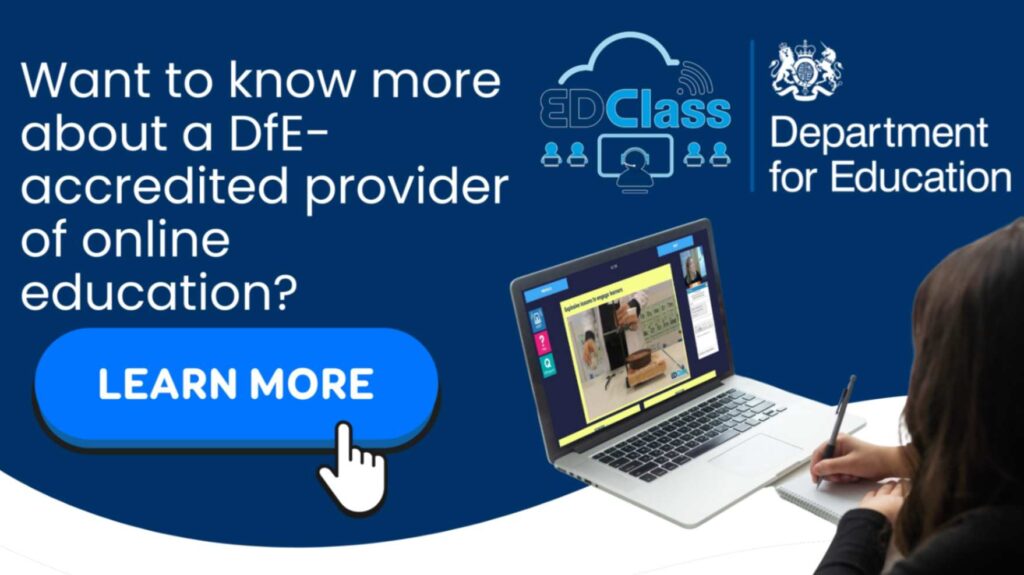From EDClass’s Head of Teaching & Learning, Danielle Myles
As we enter the penultimate stage of the academic year, we should reflect on the ways that we support children to reach their educational potential. We must recognise that all learners require high-quality, tailored support. However, this support can only be effectively achieved through forming meaningful relationships and true connections.
In the context of online learning, the challenge becomes more complex—and more urgent. Many learners arrive in digital classrooms not by choice, but by necessity. For some, traditional schooling has not met their needs, whether due to mental health, exclusion, illness, or other barriers. As educators, we cannot afford to treat online education as a transactional experience. It must be transformational. And that transformation begins with trust.
The Central Role of Connection and Communication
At the heart of effective online education lies human connection. In physical classrooms, relationships develop organically—through hallway chats, shared glances, and the subtle rhythms of face-to-face interaction. Online, those moments must be intentionally created. It requires educators to go beyond content delivery and show up as people first, teachers second. Tone, timing, and responsiveness take on amplified significance. A warm greeting at the start of a video call or a thoughtful reply to a submitted assignment can quietly validate a learner who may otherwise feel unseen.
Communication in online settings must also be multidimensional. It’s not just about video calls or feedback on learning—it’s about cultivating ongoing dialogue. Regular check-ins and informal conversations are essential for creating a safe space for learners. Importantly, these interactions should reflect the learner’s whole self, not just their academic performance. When students feel that their experiences and emotions are acknowledged, they are more likely to re-engage with learning and see their online classroom as a place of safety and possibility.
Reimagining Pedagogy for Digital Learners
Building authentic relationships online, challenges us to rethink traditional pedagogical approaches. In many cases, learners in virtual settings are rebuilding their relationship with education altogether. For some, past experiences have eroded their confidence, disrupted their attendance, or made them feel that learning is not for them. The online environment, when used with empathy and creativity, has the potential to reset that narrative.
This begins with prioritising flexibility and responsiveness. A rigid curriculum may serve systems, but it often alienates individuals. Teachers who offer choice, co-create learning goals, and personalise content can reawaken a student’s sense of agency. Moreover, embedding moments for reflection, storytelling, and dialogue into online lessons helps reframe education as something that is done with the student—not to them.
Looking Forward: Humanising the Future of Online Education
As education continues to evolve, and as online learning becomes a more permanent part of the educational landscape, the need for authentic relationships will only grow. Technology will always be a tool, not a substitute for connection. The most powerful innovations in education won’t be driven by platforms or algorithms, but by people—educators who care, who notice, who connect.
As we prepare to close another academic year, let’s move beyond the question of “What are students learning?” and ask instead, “Who are our students becoming—and how are we helping them get there?” The answers begin with connection.
You can read a written testimonial from a learner on EDClass here. If you would like to learn more about EDClass and what we can offer, please call 01909 568338, send an email to mail@edclass.com or enquire for more information here.










